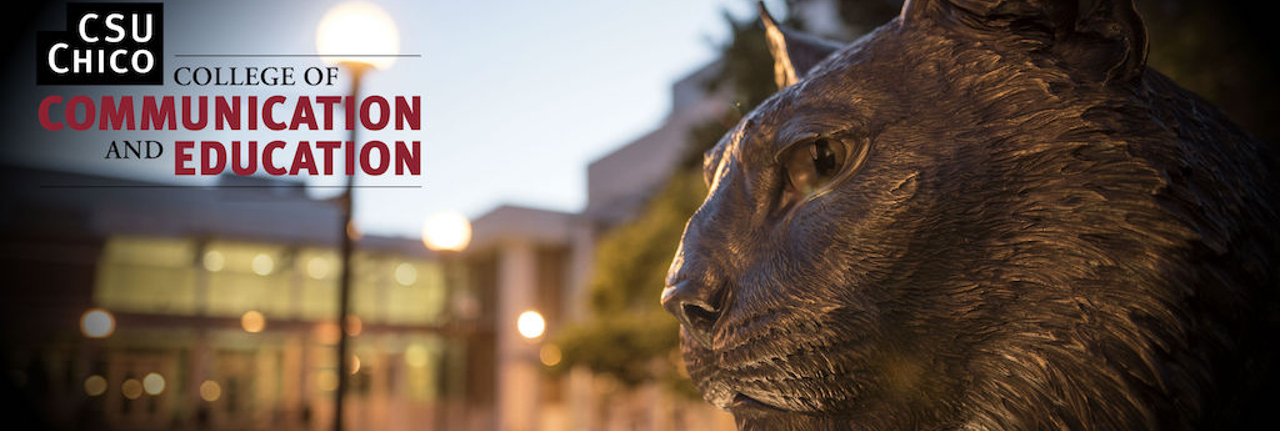BA in Liberal Studies
Overview
The CSU, Chico Liberal Studies Program is an interdisciplinary Bachelor of Arts degree designed to prepare students for careers elementary education. This interdisciplinary program consists of courses offered in 17 departments and 4 colleges. The curriculum explicitly and intentionally highlights anti-oppressive, inclusive, asset-based teaching approaches grounded in a critical pedagogy in order to prepare transformational intellectual teacher-scholars. Grounded in culturally sustaining pedagogies that nurture socially just practices, the Liberal Studies program prepares students for diverse classrooms. Such emancipatory, humanizing educational approaches informed by resistance and counter deficit views of students of color prepare beginning educators to teach their students to bring to bear the disciplinary knowledge they learn to solve challenging problems in their communities.
The program offers several baccalaureate degree emphases: General pre-credential, Bilingual pre-credential and Dual Major Liberal Studies and Child Development. The Liberal Studies Program also offers a nationally-recognized fully online degree completion program for students who are not in our local service area. Finally, for students who want a four-year Liberal Arts degree the program offers a non-teaching Liberal Arts degree.
There are three pathways for getting a BA degree in Liberal Studies. One is a four-year pre-credential degree preparing students to apply for a credential program. Two pathways offer students a BA degree combined with a teaching credential.
3 Pathways
BA in Liberal Studies
Online and face-to-face programs
4 academic years
2 academic years
BA in Liberal Studies
plus MS Credential: Accelerated
4 academic years
2 years,
2 summers
(2 calendar years)
BA in Liberal Studies
plus SPED Credential: Accelerated
4 years,
2 summers,
1 semester
(4.5 calendar years)
2 years,
2 summers,
1 semester
(2.5 calendar years)
Mission
The Liberal Studies program is committed to ensuring academic rigor in preparing students who will become the professionals, mentors, and leaders in our nation's schools and throughout society. Transformative intellectual leadership and a commitment to the values of evidence-based reasoning, civic engagement, social ecological justice and collaboration distinguish our program graduates. The program views learning as a socially and civically engaged process. Participation in this process requires intellectual inquiry, reflection and the exploration of the interconnectedness and relationships among the disciplines, society, and our own humanity. The connection between theory and practice is valued as essential for students to become informed and inquiring members of society and to serve their community.
Goals & Objectives
- Students will have foundational knowledge and recognize significant ideas, concepts, structures, and values within and among the disciplines.
- Students will explore the interconnections and relationships among the various disciplines' methodology and process skills as they attend to theoretical, ethical and practical implications.
- Students will communicate clearly and effectively (both verbally and in writing) with a variety of audiences, using appropriate academic discourse and technology.
- Through coursework and community service, students will develop interpersonal and collaborative skills, as well as develop an awareness of different perspectives and cultural diversity.
- Students will critically analyze and reflect on experiences, materials and research to solve problems and acquire the qualities needed to become life-long learners.
- Students will develop an appreciation of the aesthetics within their environment, both manmade structures and natural surroundings.
Learning Outcomes
1a. Students demonstrate foundational understandings, concepts and values in: reading, language and literature; history and social sciences; mathematics; science; visual and performing arts; health; and human development.
1b. Students synthesize information from multiple sources.
2. Students apply knowledge from multiple disciplines to understand real-world situations.
3. Students organize, write and/or deliver effective presentations using appropriate academic discourse and technologies.
4a. Students serve the community in settings where a variety of populations in California are represented.
4b. Students collaborate and communicate with, and develop an awareness of individuals with different perspectives and/or cultural backgrounds.
5a. Students critically examine evidence as a means to solve problems.
5b. Students demonstrate an ability to conduct research, analyze evidence, reach conclusions and relate their own personal theories to empirical research and best practices.
6a. Students demonstrate an understanding of various concepts of beauty and their influence on human thought, behavior, and action.
6b. Students are able to relate various concepts of beauty to the natural environment.

